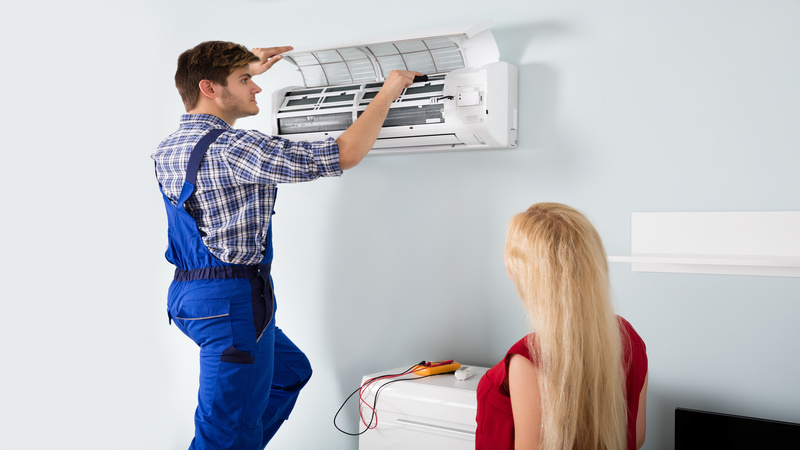A common question by many homeowners is when to replace an aging HVAC (Heating, Ventilation and Air Conditioning) system. There are always debates about this situation, and no exact answer will fit every situation. However, an aging system will not be as efficient as the new one which means operating the new HVAC should save money on the utility bills. Another consideration is repaired. That is, how much will the current repair cost and how long will the appliance keep functioning before another failure occurs. Serious issues such as condenser failure can be rather expensive, and the cost tends to increase with the age of the appliance. Thankfully, most experienced Air Conditioner Technicians can explain the problems and how the repair will affect the system. The average life expectancy is roughly ten to fifteen years for a well maintained and repaired unit.
The HVAC works by compressing a refrigerant and cycling it through a set of coils. The first coil after the condenser is the evaporator coil. This is mainly due to the function/effect of the coil. When the refrigerant is condensed, it makes a state change. Once it enters the evaporator coil, the refrigerant begins accumulating heat from around this coil. Keep in mind that the temperature of the refrigerant is still lower than the ambient temperature of the surrounding air. As the refrigerant soaks up the heat, it evaporates or changes state again. The result of this exchange cools the metal of the coil which allows the unit to distribute the chill throughout the building.
Once the new system is in place, trained Air Conditioner Technicians can then work diligently to keep it functioning at its peak. This usually requires annual service for testing, cleaning and inspection of the system. Some owners tend to get confused about when to have an HVAC serviced, but the best rule of thumb is service the AC or furnace before it is heavily used for the year. This means the AC should have routine service at the end of winter or early spring, and the furnace should be serviced before winter arrives. In most cases, roughly six months apart usually works. In warmer climes such as Florida where the furnace is used less often, the date for the furnace will vary, but it should be serviced before using it every year so the technicians can remove any flammable dust collected inside. Visit website for more details. You can also connect them on Facebook!

